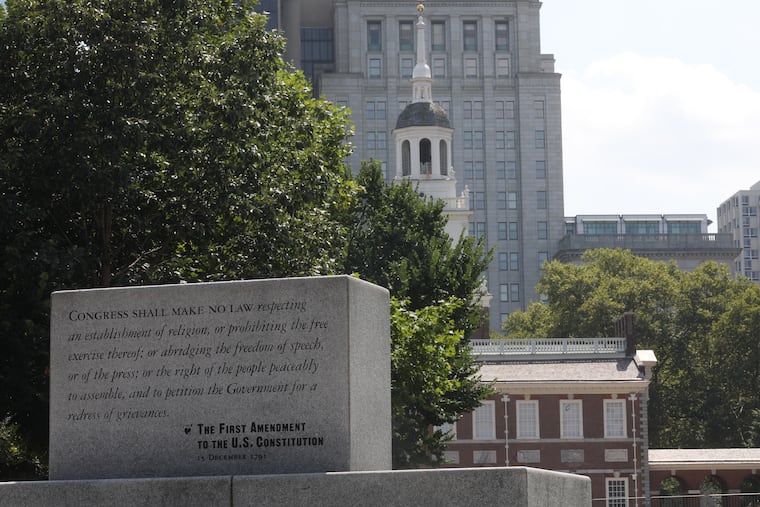Stop the war on a free press | Editorial
If the press is not free from reprisal, punishment or suspicion for unpopular views or information, neither is the country. Neither are its people.

A war on the press is a war on democracy.
It is a war not just on the American people, but on people throughout the world.
President Trump declared this war soon after taking office. His "fake news" mantra is now weaponized and aimed at any news coverage – and often any fact – with which he disagrees. Alarmingly, his enmity for the news media continues to escalate. It was not enough to label American journalists as enemies of the people. Now he has called the entire profession "dangerous and sick."
We are proud to join with hundreds of news organizations around the country to call for this dirty war to stop. This editorial is one of over 200 being published Thursday in a coordinated effort to alert the American people to the dangers inherent in the president's actions, which are intended to undermine the ability of the press to question, examine, and investigate on behalf of all citizens.
Criticism of the press is part of healthy debate in a democracy. Media organizations, including ours, sometimes earn the criticism. But demonization of the press is now a calculated White House strategy, intended to impede a process whose purpose is to inform the citizenry. News is information, and information enables those who live in a democracy to make up their minds. This is what the president is openly threatening.
The free flow of information is the bedrock of any democracy, and played a key role in this country's formation. The American Revolution unfolded in the pages of newspapers, pamphlets, and broadsides that kept people informed and aired both sides of the conflict between the colonists and the British government. By the time the Constitution was ratified, press freedom was important enough to be codified in its very first amendment.
As the birthplace of our democracy, Philadelphia was also one of the birthplaces of a free press, and the Inquirer, born not long after the country's own birth, proudly continues that legacy.
Much as we're disturbed by attacks on the press, we know there's an important distinction between national media outlets and the local journalism we produce. Local journalism is as important to the healthy functioning of a community as are its schools, churches and public safety departments. That's why we work every day to hold those in power to account, whether politicians, clergy or police officers; to fight for those victimized by toxic buildings, school violence, or indifferent systems; to give voice to those who are not heard; to recognize acts of community heroism; and to encourage robust debate on every issue critical to the region.
The economic model for the news industry is challenging, particularly for print. The president openly relishes this – thus the adjective "failing." Here in Philadelphia, thanks to the foresight of philanthropist H.F. "Gerry" Lenfest, the situation is far more stable under the nonprofit structure he established and endowed. As a public benefit corporation, we aren't beholden to anyone but the citizens of this region, and we consider what we do to be a public trust.
We find it deeply troubling that our president attempts to undermine this trust, and tries to diminish the freedom our founders promised to all.
If the press is not free from reprisal, punishment or suspicion for unpopular views or information, neither is the country. Neither are its people.
To our subscribers, we thank you for supporting our mission of keeping local journalism strong.
If you're not an Inquirer subscriber, join the mission at philly.com/join or call 215-222-2765 and mention "join."